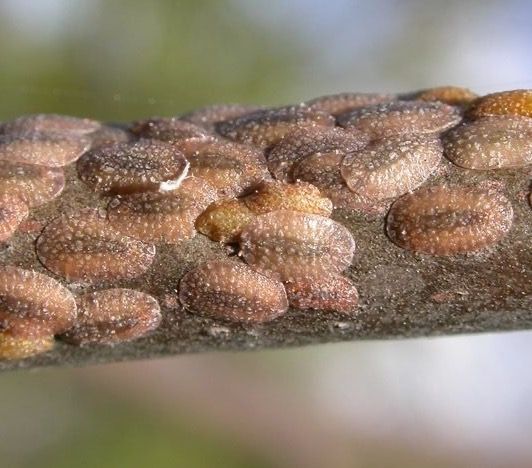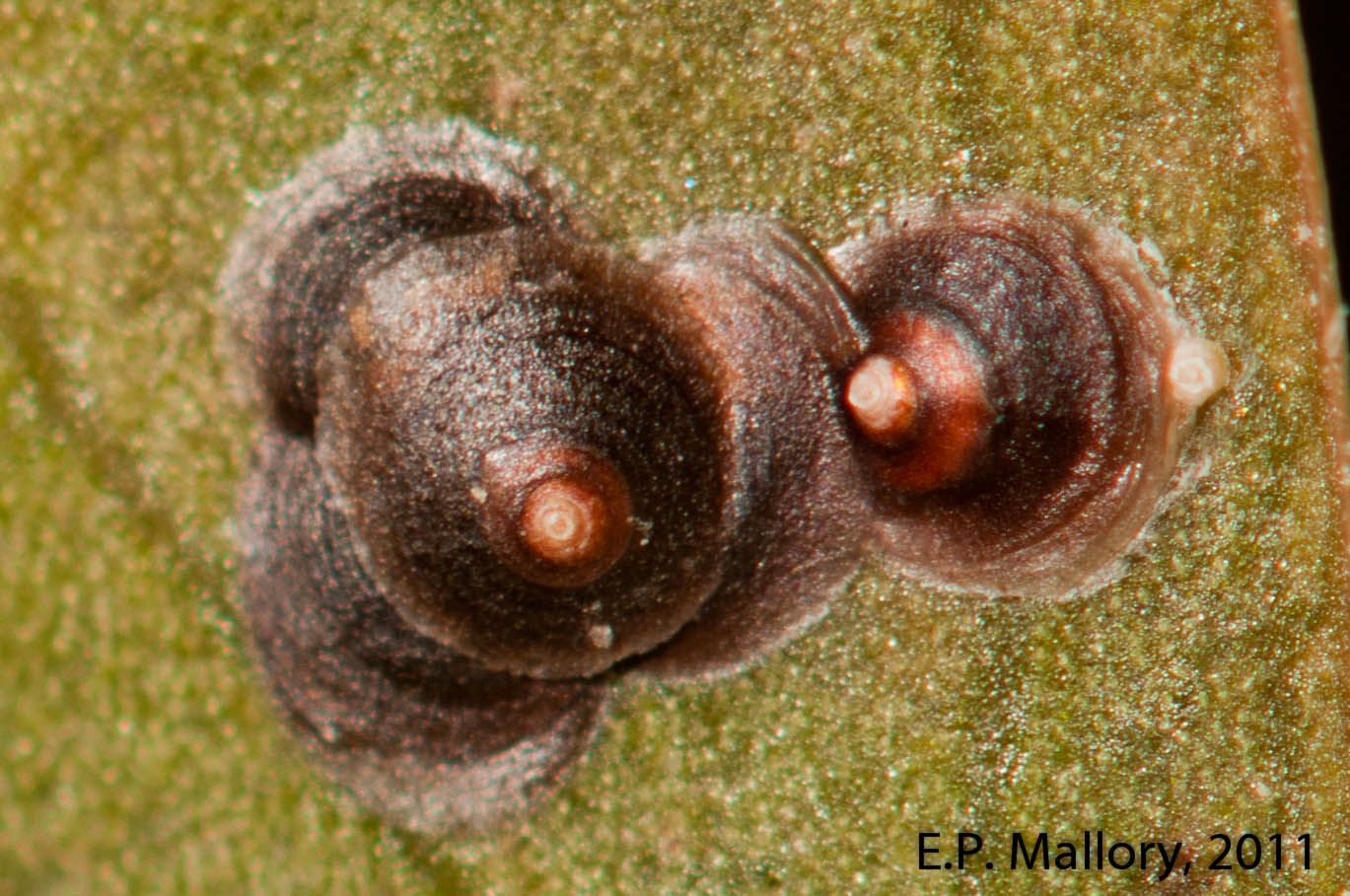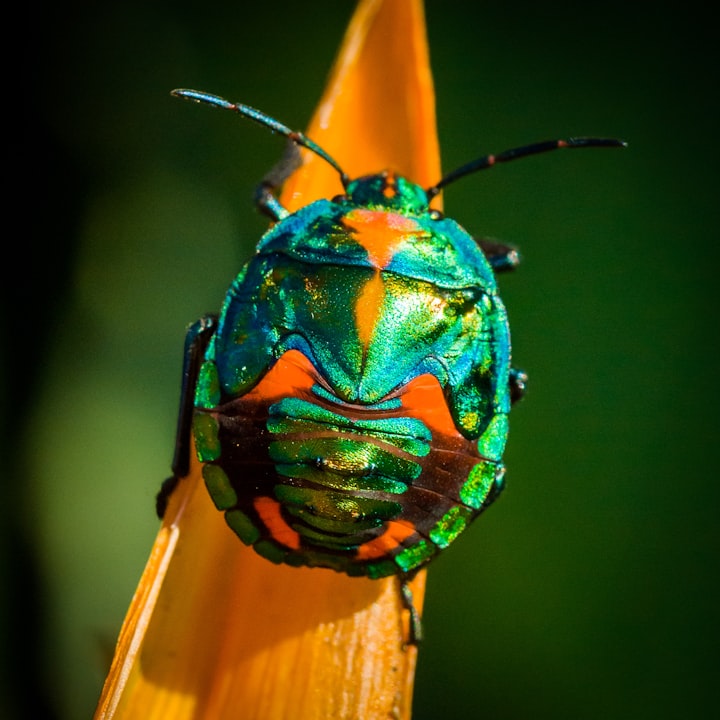Scales
Scales, called scale insects, are a widespread group of tiny, wingless insects from the order Hemiptera.

They feed on the bark, leaves, and fruit of perennial trees and shrubs using straw-like mouthparts, causing damage and potentially spreading diseases.
Identifying the species of scale is crucial, as different types cause unique damage and require specific treatments.
The two major categories of scale insects are armored (hard) scale and soft scale.
Identifying the particular scale species on your plants will help you choose the appropriate prevention and treatment methods to ensure a healthy garden.
Understanding Scales
Lifecycle and Appearance
Scale insects are small, typically less than a quarter inch long, and have a unique life cycle.
They begin as eggs, hatch into crawlers, and then molt into their adult form, attaching themselves to the bark or leaves of their host trees.
These pests can be challenging to identify due to their small size and flat, immobile adult stage.
Armored scales have a hard, protective covering, while soft scales secrete a waxy substance and can appear more "fleshy."
Common Host Trees
Scale insects can infest many trees, including oak, elm, magnolia, maple, conifer, poplar, and sycamore.
Regularly inspect your trees for signs of scale infestations and take appropriate measures to prevent or treat the issue.
Proper tree care can help maintain your trees' health and reduce their susceptibility to scale infestations.
Types of Scales
There are two main types of scale insects: armored scales and soft scales.
Armored scales are characterized by their hard protective covering, which can be difficult to penetrate with insecticides.

Soft scales have a softer, waxy exterior and may produce honeydew, a sticky residue.
Each type has unique treatment and prevention methods, so it's essential to identify which scale affects your trees.
Scales Identification
Identification of Leaves and Fruits
Scales are sucking insects that insert their tiny, straw-like mouthparts into various parts of plants, such as bark, fruits, or leaves.
You can identify scales on leaves and fruits by looking for symptoms like leaf drop, premature leaf drop, and sooty mold on oak leaves or pine needle scales.
Identifying Soft and Armored Scales
There are two main types of scales: soft scales and armored scales. Soft scales typically secrete a sticky substance called honeydew, often associated with sooty mold.
On the other hand, armored scales have a protective covering and can be identified by their circular to oval shapes.
Identification tools with detailed diagnostic information and images are available to determine the scale species further.
Damage Caused by Scales
Damage Assessment on Trees and Shrubs
Scales are sucking insects that consume sap or plant cell contents, affecting the health of trees and shrubs.
Damages caused by their feeding can lead to branch dieback, especially in high infestations.
Their presence can also weaken the bark of trees and shrubs, reducing the stability and overall health of the plants. It is essential to monitor and control scale populations to avoid prolonged damage and potential loss of your plants.
Impact on Fruits
Scale insects can significantly impact fruit trees, as they feed on the sap and weaken the fruit quality and yield.
The bark and branches of fruit trees are also susceptible to these pests, which can make the trees vulnerable to diseases and other health issues.
Moreover, fruit damage caused by scales can lead to reduced agricultural productivity and significant economic losses for farmers.
Therefore, proper identification, treatment, and prevention methods are crucial to protect your fruit trees and maintain a healthy and productive garden or orchard.
Scales Treatment
Chemical Treatment
Consider systemic insecticides such as imidacloprid and dinotefuran to treat scales using chemical methods.
These insecticides effectively control soft scales and specific other scales but do not control armored or cottony cushion scales.
Applying horticultural oil can also help control scale insects, as the oil stays on long enough to affect soft scales protected by their waxy coating.
However, following the product's label instructions is essential to prevent plant damage.
Non-Chemical Treatment
Neem oil is a useful, natural alternative to chemical treatments.
Apply neem oil to the affected plants to combat scale infestations, but always check the label for proper usage and application rates.
Another non-chemical method involves removing scales from plants using a soft brush or cloth.
Regularly inspect your plants and take prompt action when you notice any scale insects, as early intervention can prevent severe damage to your plants.
Natural Enemies and Biological Control
Beneficial Insects
Your garden can benefit from the presence of certain insects that serve as natural enemies against scale insects.
Predators, such as lady beetles, parasitic wasps, and lacewings, help keep scale populations in check.
These beneficial insects target the crawler stage of scales and can help prevent infestations from worsening.
Ensure a healthy habitat for these helpful insects in your garden by incorporating native plants, minimizing pesticide use, and maintaining diversity in your landscape.
This will encourage the presence of natural enemies and aid in biological control efforts.
Crawler Stage Predation
The crawler stage is a vulnerable period in the life cycle of scale insects. During this stage, predators like mites and spiders can effectively feed on them.
Encourage these predators to thrive in your garden by providing diverse microhabitats and minimizing the use of pesticides that could negatively impact them.
Additionally, time your treatments to coincide with the presence of crawler stage scales, as the predators will have the most impact during this period.
By including beneficial insects and prioritizing crawler-stage predation, you can effectively manage scale insect populations while maintaining a healthy, balanced garden ecosystem.
Scales Prevention
Cultural Prevention Methods
To prevent scale infestations in your plants, maintain their overall vigor by providing proper nutrition, watering, and sunlight.
Avoid over-fertilizing as this can lead to increased scale populations. Pay attention to temperature conditions, as extreme conditions can also influence the development of these pests.
Regularly inspect your plants for signs of scale insects, especially during their growth season, and promptly remove any infested portions.
Clean the surfaces of stems and leaves using a soft brush or cloth soaked in mildly soapy water to remove any scale insects.
Biological Prevention Methods
Introduce beneficial insects to your garden, such as ladybugs and lacewings, as they are natural predators of scale insects.
These predators can help maintain a healthy ecosystem and control the scale insect population.
Another biological prevention method is parasitic wasps, which target specific scale species.
It's essential to be aware of local or regional ordinances and regulations regarding releasing biological control agents, as some may be considered invasive or require specific permits.
Following these cultural and biological prevention methods, you can protect your plants against scale insects and ensure a healthy, thriving garden.
Associated Conditions
Fungal Infections
Sooty mold is a fungus that grows on the honeydew produced by insects feeding on plant sap.
It would be best to control insect populations and regularly clean affected plant surfaces to prevent sooty mold.
Fungal infections can be avoided by maintaining a clean, dry environment for your plants and using proper watering techniques.
Ensure good air circulation, as this helps prevent mold and other fungi growth.
Effect of Weather Conditions
Drought can stress plants, making them more susceptible to diseases and infections.
To counter the effects of drought, you should adjust your watering practices and choose plants suited to your region's climate.
Periods of excessive moisture can also weaken plants, making them more prone to diseases.
To manage this, improve drainage in your garden and avoid over-watering to maintain a healthy moisture balance for your plants.
Frequently Asked Questions
How to identify scale insects on plants?
Scale insects can be identified by their circular to oval shape, around 0.1 inches long, and their tendency to feed on plant sap within plant stems and leaf tissue. You might notice a sticky residue, known as honeydew, on your plants, which attracts ants and causes sooty mold growth.
Which insecticides are most effective for treating scale insects?
Systemic insecticides, such as imidacloprid, can be effective against scale insects when applied to the soil. Horticultural oil and insecticidal soap sprays are additional options for control but monitor and reapply as needed for best results.
What natural remedies can be used to remove scale from plants?
Homemade solutions, such as a mixture of water, mild dish soap, and neem oil, can remove scale insects from plants. Make sure to thoroughly spray the affected plant, focusing on the undersides of leaves, and repeat the process as needed.
Do alcohol and horticultural oil work well against scale?
Yes, rubbing alcohol and horticultural oil can help in controlling scale infestations. Rubbing alcohol can kill scales on contact, while horticultural oil helps by suffocating them. Ensure proper application and coverage to achieve optimal results.
What are the best methods to prevent scale infestations?
To prevent scale infestations, regularly inspect your plants for signs of infestation, keep your plants healthy and well-watered, and consider introducing natural predators, like ladybugs, to your garden. Proper plant maintenance, such as pruning and cleaning, can help keep scale populations in check.
Can scale insects cause plant diseases?
While scale insects do not directly cause plant diseases, they can weaken plants by feeding on their sap, making them more susceptible to other ailments. Additionally, their honeydew excretions can facilitate the growth of sooty mold, inhibiting photosynthesis and reducing overall plant health.


